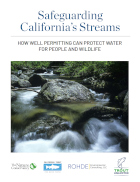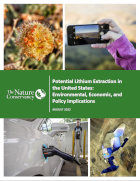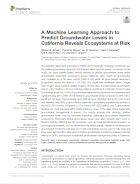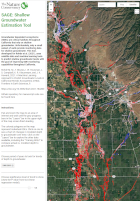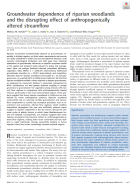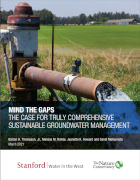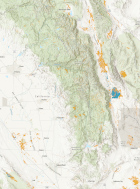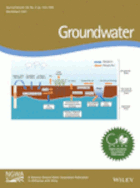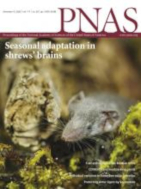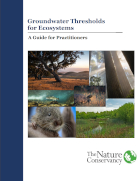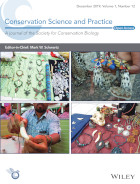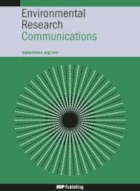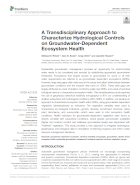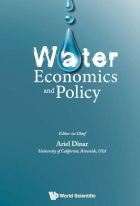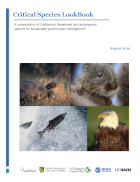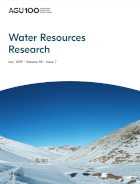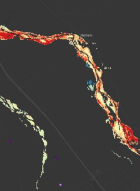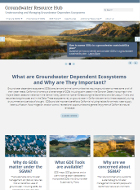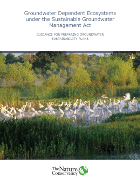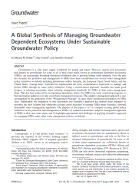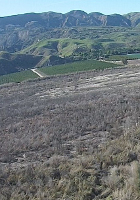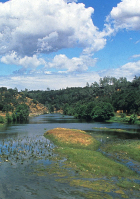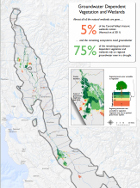Melissa Rohde

Groundwater Scientist
Years of service: 2016-2022
Freshwater
[email protected]
Select products
2026 | Freshwater | Science | Publications & Reports
Safeguarding California’s Streams: How Well Permitting Can Protect Water for People and Wildlife
Monty Schmitt (TNC), Nicholas Murphy, Matthew Clifford, Charlie Schneider, Melissa M. Rohde (TNC alum)
Groundwater management is changing across California. In 2018, a legal decision ruled that counties must address the potential negative impacts on public trust resources, particularly streamflow…2022 | Freshwater | Terrestrial | Science | Publications & Reports
Potential Lithium Extraction in the United States: Environmental, Economic, and Policy Implications
Sophie S. Parker, Bradley Franklin, Brian S. Cohen, Melissa M. Rohde, Michael Clifford, Andrew Williams
Climate change will cause severe financial, social, and environmental upheaval if a massive reduction in carbon emissions is not achieved by 2030. To address this challenge, rechargeable lithium-ion…2022 | Freshwater | Planning | Science | Publications & Reports
A Machine Learning Approach to Predict Groundwater Levels in California Reveals Ecosystems at Risk
Melissa M. Rohde, Tanushree Biswas, Ian W. Housman, Leah S. Campbell, Kirk R. Klausmeyer, Jeanette Howard
Groundwater dependent ecosystems (GDEs) are increasingly threatened worldwide, but the shallow groundwater resources that they are reliant upon are seldom monitored. In this study, the researchers…2022 | Freshwater | Planning | Science | Maps & Webmaps
SAGE: Shallow Groundwater Estimation Tool
Melissa M. Rohde, Tanushree Biswas, Ian W. Housman, Leah S. Campbell, Kirk R. Klausmeyer, Jeanette Howard
Groundwater dependent ecosystems (GDEs) are critical habitats throughout California that rely on shallow groundwater. Unfortunately, only a small subset of wells provide monitoring data for shallow…2022 | Freshwater | Planning | Science | Publications & Reports
Groundwater dependence of riparian woodlands and the disrupting effect of anthropogenically altered streamflow
Melissa M. Rohde, John C. Stella, Dar A. Roberts, Michael Bliss Singer
This study combines satellite, groundwater, and streamflow data over a 5 year period (2015-2020) to understand the impacts of groundwater depth and streamflow alteration on groundwater-dependent…2021 | Freshwater | Planning | Science | Publications & Reports
Mind the Gaps: The Case for Truly Comprehensive Sustainable Groundwater Management
Barton H. Thompson, Jr., Melissa M. Rohde, Jeanette K. Howard, Sandi Matsumoto
In 2014, California’s landmark Sustainable Groundwater Management Act (SGMA) promised comprehensive management of California’s groundwater. This report, Mind the Gaps: The Case for Truly…2021 | Freshwater | Terrestrial | Planning | Technology | Science | Data
Natural Communities Commonly Associated with Groundwater Version 2.0 (NCCAG 2.0)
Kirk Klausmeyer, Jeanette Howard, Melissa Rohde, Charlotte Stanley
The first step to sustainably manage groundwater dependent ecosystems (GDEs) is to identify where they are. The Nature Conservancy developed a statewide spatial database that provides locations of…2021 | Freshwater | Planning | Science | Publications & Reports
Managing Groundwater to Ensure Ecosystem Function
Laurel Saito, Bill Christian, Jennifer Diffley, Holly Richter, Melissa M. Rohde, Scott A. Morrison
In this paper, we describe minimum provisions for planning, managing, and monitoring groundwater in a manner that collectively can lower the risk of harm to groundwater-dependent ecosystems and…2020 | Freshwater | Planning | Technology | Science | Publications & Reports
Base of fresh water, groundwater salinity and well distribution across California
Mary Kang, Debra Perrone, Ziming Wang, Scott Jasechko, Melissa M. Rohde
To ensure that California’s groundwater is sustainably managed in the future and over the long-term, current state definitions of what constitutes groundwater may need to be revised, according…2020 | Freshwater | Science | Publications & Reports
Groundwater Thresholds for Ecosystems: A Guide for Practitioners
Melissa M. Rohde, Laurel Saito, Ryan Smith
In addition to benefiting humans, groundwater is a critical water supply to many ecosystems, providing a buffer during dry periods and critical habitat for rare and endemic species. Increasing…2019 | Freshwater | Planning | Science | Publications & Reports
Dynamic multibenefit solutions for global water challenges
In this article, the authors provide an example of how dynamic multi-benefit solutions used to provide “pop-up” wetland habitat for migratory birds also replenishing depleted aquifers to…2019 | Freshwater | Science | Publications & Reports
Cannabis and residential groundwater pumping impacts on streamflow and ecosystems in Northern California
Samuel C. Zipper, Jennifer K. Carah, Christopher Dillis, Tom Gleeson, Ben Kerr, Melissa M. Rohde, Jeanette K. Howard, Julie K.H. Zimmerman
Using a newly developed tool for estimating streamflow depletion from groundwater pumping, this study examined the impacts of ongoing groundwater pumping on streamflow and aquatic ecosystems in the…2019 | Freshwater | Science | Publications & Reports
A Transdisciplinary Approach to Characterize Hydrological Controls on Groundwater-Dependent Ecosystem Health
Melissa M. Rohde, Sara B. Sweet, Craig Ulrich, Jeanette Howard
Groundwater plays an essential role in supporting freshwater species, riparian habitats, and migratory birds. These ecological communities, commonly referred to as groundwater-dependent…2019 | Freshwater | Publications & Reports
Economic Tools to Achieve Groundwater Sustainability for Nature: Two Experimental Case Studies from California
Sandi Matsumoto, Melissa M. Rohde, Sarah Heard
Groundwater is a critical water supply around the world and is increasingly under threat from pumping that exceeds natural replenishment. Successful implementation of California's Sustainable…2019 | Freshwater | Science | Publications & Reports
Critical Species LookBook: A compendium of California's threatened and endangered species for sustainable groundwater management
Rohde MM, Seapy B, Rogers R, Castañeda X, editors
Plant and animal species can rely on groundwater directly or indirectly for water, nutrients, and stable temperatures. The Critical Species LookBook is a compendium of 84 state and federally listed…2019 | Freshwater | Science | Publications & Reports
Rapid and Accurate Estimates of Streamflow Depletion Caused by Groundwater Pumping Using Analytical Depletion Functions
Samuel C. Zipper, Tom Gleeson, Ben Kerr, Jeanette K. Howard, Melissa M. Rohde, Jennifer Carah, Julie Zimmerman
Reductions in streamflow from groundwater pumping can negatively impact water users and aquatic ecosystems but are challenging to estimate due to the time and expertise required to develop numerical…2019 | Freshwater | Technology | Science | Maps & Webmaps
GDE Pulse: Monitoring Groundwater Dependent Ecosystems with Satellites
Kirk Klausmeyer, Falk Schuetzenmeister, Nathaniel Rindlaub, Tanushree Biswas, Melissa M. Rohde, Jeanette Howard
94,333 unique ecosystems depend on groundwater in California. GDE Pulse lets you see how they have changed over the last 30 years. Groundwater managers and environmental stakeholders often lack…2018 | Freshwater | Science | Microsite
Groundwater Resource Hub
Sandi Matsumoto, Gregg Werner, Melissa Rohde, Kirk Klausmeyer
Groundwater dependent ecosystems (GDEs) are plant and animal communities that require groundwater to meet some or all of their water needs. GDEs provide important benefits to California including…2018 | Freshwater | Science | Publications & Reports
Groundwater Dependent Ecosystems under the Sustainable Groundwater Management Act: Guidance for Preparing Groundwater Sustainability Plans
Rohde, M.M., S. Matsumoto, J. Howard, S. Liu, L. Riege, E.J. Remson
California's Sustainable Groundwater Management Act (SGMA) of 2014 is landmark legislation that empowers local agencies, known as groundwater sustainability agencies, to sustainably manage…2017 | Freshwater | Planning | Science | Publications & Reports
A Global Synthesis of Managing Groundwater Dependent Ecosystems Under Sustainable Groundwater Policy
Melissa M. Rohde, Ray Froend, Jeanette Howard
Groundwater is a vital water supply worldwide for people and nature. However, species and ecosystems that depend on groundwater for some or all of their water needs, known as groundwater dependent…2016 | Freshwater | Science | Publications & Reports
Benefits and Economic Costs of Managed Aquifer Recharge in California
Debra Perrone, Melissa M. Rohde
Managed aquifer recharge (MAR) projects can play an important role in ensuring California manages its groundwater sustainably. This study, the first to investigate the benefits and economic costs…2016 | Freshwater | Maps & Webmaps
How and Where Nature Uses Groundwater
Kirk Klausmeyer, Jeanette Howard, Sandi Matsumoto, Sally Liu, Melissa Rohde
Groundwater is essential to the health and viability of plants, animals and ecosystems. Many tree species, like willows and cottonwoods, rely on groundwater to survive seasonal and annual dry spells.…